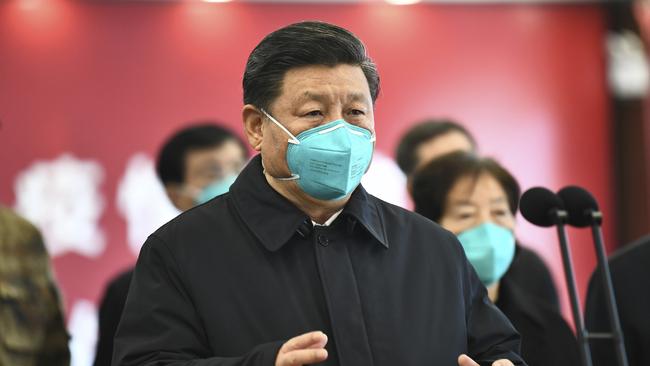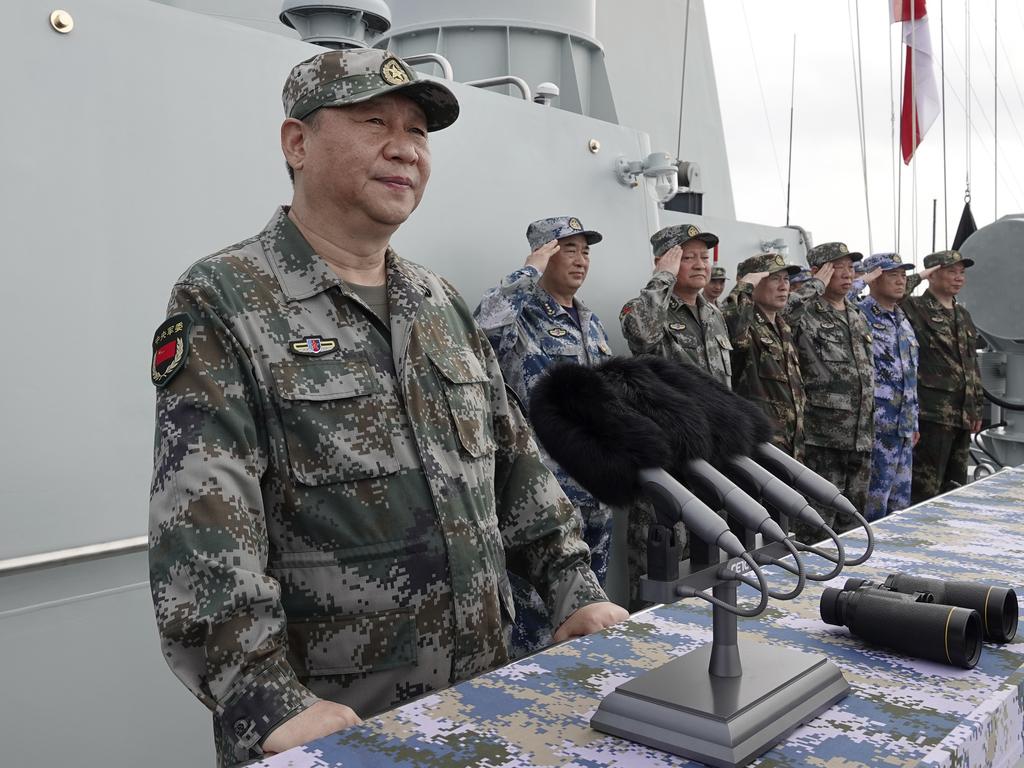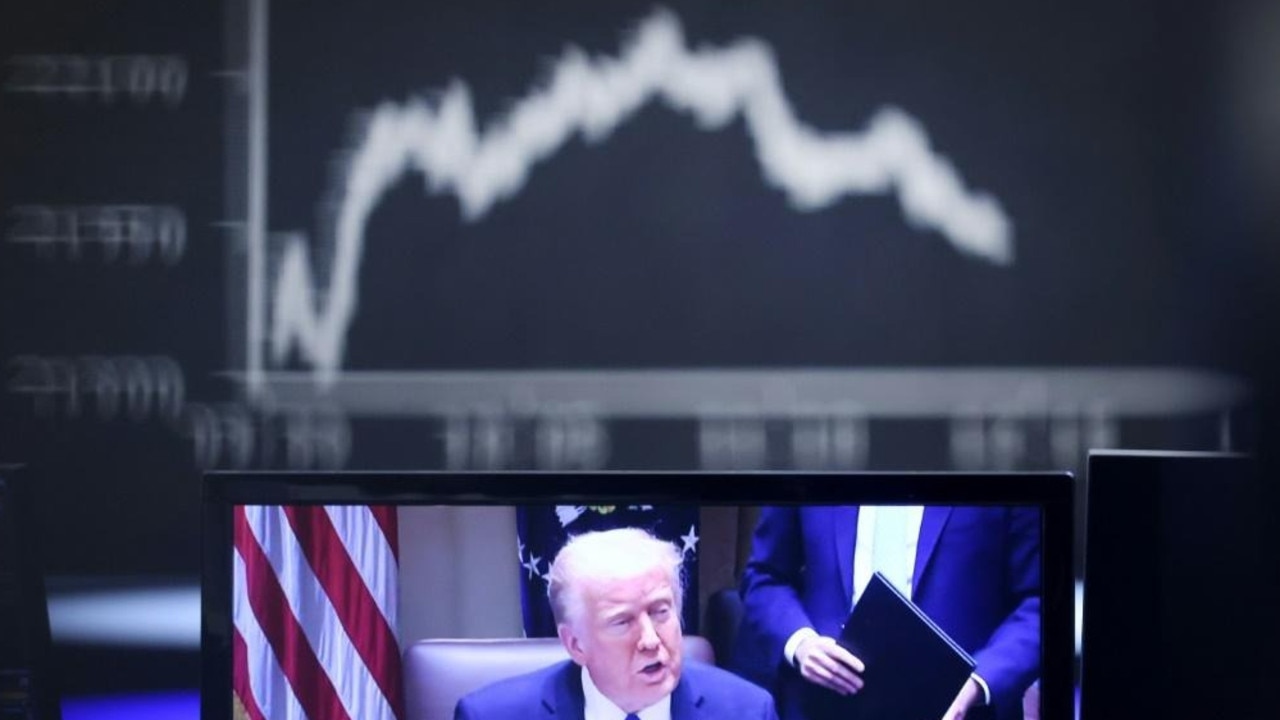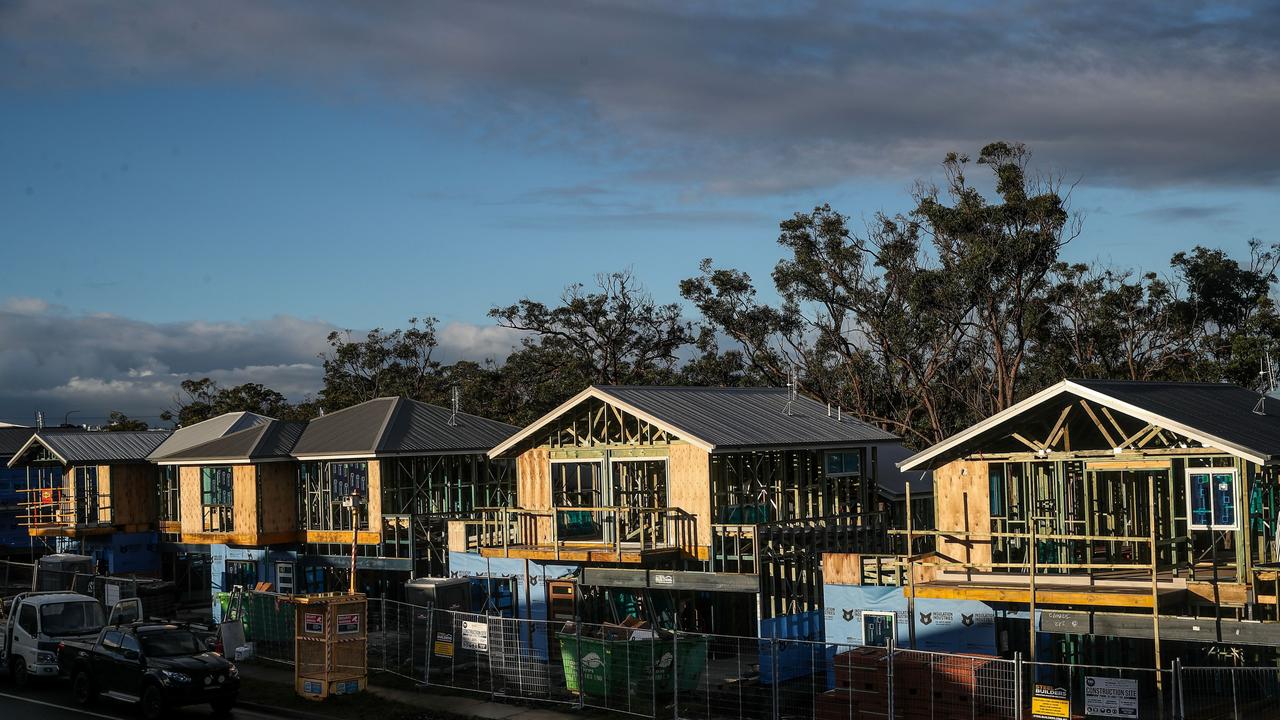China relationship headed for the rocks
Australia’s relationship with China has been thrown into jeopardy.

Australia is not alone. Many nations will fundamentally rethink their view of Beijing. This is partly reassuring as it indicates that it is not any Australian misjudgment that will cause the trouble. But it’s perplexing because Canberra will have to deal with the fallout from Beijing’s newly troubled relationship with other nations, especially the US.
There was trouble in the relationship before coronavirus. Scott Morrison as Prime Minister has not had a single formal meeting or phone call with China’s President, Xi Jinping, though they have said hello at G20 and Asia Pacific Economic Co-operation summits.
This is not Morrison’s fault. Beijing continues to take actions that damage Australia directly and the Morrison government, like its predecessors, tries to safeguard our national interest.
But the virus has exposed, and caused, deep conflicts of interest between the two nations which will get worse.
Consider the bewildering array of disagreements the Morrison government has had with Beijing.
At the end of last month Josh Frydenberg reduced the threshold at which proposed foreign investments would be subject to scrutiny by the Foreign Investment Review Board to zero dollars.
Notionally this is not China-centric. In reality it reflects a determination that Beijing and its companies will not be allowed to buy up distressed Australian assets at bargain-basement prices. The government has just knocked back a proposed Chinese investment in a rare-earths operation. This is part of a determination by the US and its allies to end the near monopoly in rare-earths metals — which are essential for many hi-tech products — that Beijing enjoys.
This week Foreign Minister Marise Payne proposed an international review “to consider the genesis and spread of the pandemic, evaluate the different approaches to dealing with it, examine how information has been shared and assess the engagement of the World Health Organisation in the response”.
This was surely the most polite expression of the most reasonable suggestion. As Payne observed, the virus has infected millions of people, directly killed nearly 200,000 and wiped trillions of dollars from the world economy.
She might have added it has thrown tens of millions out of work and threatens the ability even to get enough food to eat of millions of people in the developing world. The UN’s World Food Program says it threatens famine of biblical proportions. Lest that be seen as UN exaggeration, the Bank of England thinks it might produce the worst recession not in decades but in centuries.
Germany’s Chancellor Angela Merkel and France’s President Emmanuel Macron, both of whom have previously been acutely alive to Beijing’s sensitivities, demanded greater transparency from Beijing over how the virus began and spread.
Britain’s Foreign Secretary, Dominic Raab, who is Acting Prime Minister while Boris Johnson recovers from his near-death coronavirus experience, also called for a “deep dive” review into how the virus spread from Wuhan, and said it could not be “business as usual” with China after the COVID-19 crisis passes.
Asian leaders have been less explicit but polls tell the story. Just under 70 per cent of India’s population blames Beijing for the virus.
But Payne was furiously denounced by the Chinese Foreign Ministry for her polite call.
She also refused, on national television, to say that she generally trusted Beijing. She did trust it in the work it did specifically with Canberra, she said, but would not affirm general trust and said her concern over Beijing’s credibility regarding coronavirus issues was “at a high point”.
Labor’s careful spokesperson on foreign affairs, Penny Wong, when asked on ABC radio if she trusted China, replied: “Well, I think transparency and openness are the basis of trust and the world wants to trust China. China wants to be trusted. And that requires China to be more transparent.”
What Australian politician on speaking terms with reality could possibly say she trusted Beijing after the coronavirus performance? It is almost impossible to keep track of the bewildering number of disagreements between Canberra and Beijing which the virus has given rise to.
Consider Peter Dutton, the Home Affairs Minister. He is the Paul Gallen of the Morrison government (for non-rugby league states, suffice to say Gallen is the man you don’t want to meet in the middle of a scrum). He is the hardest line senior figure in the government but he doesn’t say anything that is not Australian government policy.
He observed in effect that the virus would affect the way nations looked on China and demanded, politely enough, much greater transparency from Beijing.
This earned him a ferocious denunciation from the Chinese embassy in Canberra, which accused him of parroting Washington’s line and taking instructions from America. It was as insulting a rebuttal as it could be.
The Chinese embassy had expressed its “deep dissatisfaction and regret” at Morrison’s action when, at the beginning of February, he banned travel from China to Australia except for Australian residents returning. The embassy wanted financial compensation for Chinese travellers.
All the way through this crisis Morrison has carefully avoided any inflammatory, or even directly critical, language about Beijing. But in protecting Australia’s national interests, and simply describing reality, he has said and done things which infuriated the Chinese Communist Party.
Morrison has always straightforwardly said that the virus originated in Wuhan. This contradicts a truly preposterous Beijing claim that actually the virus was brought to China by Americans, a story so absurd it stands in good company with the most ridiculous far- fetched dark fantasies of Soviet propaganda from the Cold War.
Morrison backed Payne, of course, and also explicitly defended Dutton and the language he used, which in truth was quite mild, saying Dutton had “set out the situation well”.
The Prime Minister doubled down on his call for a proper international review of the pandemic, saying: “Well, I think such an inquiry is important and we can respectfully have a different point of view from that put by China.”
Morrison has also rightly taken a hard line against that tiny fraction of foolish and prejudiced Australians who confuse the culpability of the government in Beijing with entirely innocent Australian citizens and residents of Chinese ethnic background.
Morrison has discussed his proposal for an inquiry with many international leaders including Donald Trump, Macron and Merkel. Payne too has canvassed the idea with her Five Eyes counterparts. Both Morrison and Payne will be discussing it with regional leaders.
Right now, senior officials from the Department of Prime Minister and Cabinet, Foreign Affairs and Trade and the Health Department are working together, and in dialogue with their international counterparts, to turn Morrison’s idea into a more concrete proposal. This is not an improper or gratuitously anti-Beijing activity by the Morrison government. It is true that by international standards Australia has had, so far, a relatively low death rate from the virus. But our economy has been devastated by the pandemic’s fallout. And as we approach winter, the medical danger is by no means necessarily over.
Beijing knew about the extent of the crisis for at least a week before Xi announced it on January 20 to the Chinese people. In truth it knew, or should have known, well before that. The world lost critical time, and many, many lives, because Beijing did not share this information.
Many influential figures argue the Chinese responsibility goes beyond that. This is not because of the conspiracy theory that the virus began in the Wuhan Institute of Virology. By giving credence to that theory, for which there is no serious evidence, Trump discredits and undermines the serious matters for which he rightly wants Beijing to take responsibility.
Former senior Defence official Paul Dibb is more sober when he writes that geostrategically, “China stands to be a loser … because its ideology forced this pandemic on the rest of the world when it could have been contained at the very outset. By suppressing information about the outbreak in Wuhan the (Chinese) authorities lost the world at least four to six weeks.”
Morrison wants not just a lessons-learned review but reform of the WHO and the way nations relate to it.
Morrison’s approach, to lead reform, is surely superior to Trump’s of simply suspending US funding of the WHO. The US suspension is likely to be temporary. But were Trump more inclined towards building alliances and co-operation he could lead an irresistible campaign to reform the WHO. Trump just doesn’t do that sort of stuff.
Neither WHO nor US health officials could get access to China in the pandemic’s early weeks.
Morrison wants countries that are members of the WHO to guarantee they will let its personnel enter when there’s a problem. The Australian review and reform proposals, when in coming days they emerge, will certainly respect member nations’ sovereignty.
The Prime Minister will propose that WHO members enter a nation only with the permission of that nation’s government. But he wants the acceptance of such outside help to be the expected norm. The Morrison government will also attempt to diversify Australia’s trade interests beyond China when the virus abates. The strategic community in Australia has been calling for this for many years. But it all seemed too hard.
If the Indian Adani mine had been approved 10 years ago we would now have a much bigger resources trade with India. We should have diversified more when we were richer. But Morrison has cultivated trade deals with Indonesia, Vietnam and Malaysia. He is right to do so.
The government has made plain Australia cannot rely on Chinese supply chains for critical medical equipment. It has taken the first steps towards establishing a realistic fuel reserve onshore, though this will take time. It wants to promote a domestic manufacturing industry.
Its main lever for encouraging this will be lower energy prices. Manufacturing will become an object of national policy.
There are three big legs to the Australia-China relationship BC — minerals and agricultural exports, tourism and Chinese students. Tourism and students from China probably won’t come back any time this year. If we keep the infection rate low, we will remain a vulnerable, non-immune population until a vaccine is developed and widely taken up.
That may mean the tourism and student relationship with China doesn’t come back for a long time, perhaps ever. Even Australia’s shortsighted universities have recently come to realise they are gravely over-dependent on the Chinese market.
A commercial relationship dominated by impersonal trade in bulk commodities will mean the shape, though of course not the volume, of the Australia-China commercial relationship could go right back to the 1950s.
There is also the real and disturbing possibility that as China’s own economy struggles it will become more adventurist and militarist in its external behaviour.
The Chinese “coastguard” recently sank a Vietnamese fishing boat, locked its guns on a Philippines ship and harassed a Malaysian resources survey ship, drawing strong protests from all the nations involved.
Beijing has stepped up military activity around Taiwan and in the East China Sea. It believes the US is massively distracted by both coronavirus and its coming presidential election. As a result we are likely entering a dangerous period of destabilising military activity by Beijing with serious risk of miscalculation.
In an important essay in next month‘s Atlantic magazine, HR McMaster, a former general and US national security adviser, outlines Beijing’s increasingly aggressive and integrated geo-strategic approach.
He calls on the US, and by implication like-minded countries, to reform their universities so that they don’t assist Beijing’s strategic ambitions; review the listing of Chinese companies which seriously abuse human rights on Western stock exchanges; provide non-Chinese alternatives in 5G technology; resist Beijing’s influence efforts in their own democracies; and cherish their Chinese diaspora populations and protect them against meddling by Beijing.
What is appropriate for the US is not always right for Australia. But just pursuing our core national interests means the Morrison government will find itself, like its predecessors, in frequent disagreement with Beijing.
After coronavirus this is likely to be more intense, more difficult and more frequent than ever before. We will still need to co-operate with Beijing where we can. It will be crucially important economically. But over time we will need to become less dependent on such a difficult partner.





The coronavirus has severely damaged the Australia-China relationship, shattering whatever illusions remained that the two nations shared strategic interests. The relationship will never be the same again. It will divide into two periods, BC and AC — Before Coronavirus and After Coronavirus.